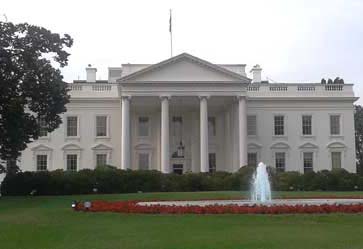 In June 2012 the U.S. Supreme Court ruled in Salazar v. Ramah Navajo Chapter that the federal government must pay for the full contract support costs (CSC) incurred by tribes while providing healthcare and other governmental services for their tribal citizens through Indian Self-Determination Act contract agreements.
In June 2012 the U.S. Supreme Court ruled in Salazar v. Ramah Navajo Chapter that the federal government must pay for the full contract support costs (CSC) incurred by tribes while providing healthcare and other governmental services for their tribal citizens through Indian Self-Determination Act contract agreements.
In opposition to that ruling, the White House shared with Congress late this summer a continuing resolution budget proposal that would allow the federal government to forgo paying millions of dollars worth of CSC to tribes.
The proposal authorizes the Indian Health Service (IHS) and the Bureau of Indian Affairs (BIA) to limit how much each tribe would be paid for CSC. Tribes would be left to pay for any CSC funding not appropriated by Congress.
Tribal leaders who have reviewed the plan say it amounts to a tribe-by-tribe federal cap on CSC funding that would wipe out tribal legal claims and put tribes in the difficult position of being required to spend money to administer contract support programs without providing them the funding to do so.
Forty-five tribes and tribal organizations sent a letter September 3 to congressional members of the Subcommittee on Interior, Environment, and Related Agencies, asking them to eliminate the administration's request from their pending appropriations bill.
"If this language is enacted, once again Indian tribes would be the only government contractors in the Nation whom the United States could cheat with impunity," the tribal leaders wrote. "Worse yet, the Administration developed this plan in secret, without any consultation with the tribes and without any consultation with the authorizing committees."
Tribal leaders have also argued that the administration's plan may be unconstitutional under the Fifth Amendment, as well as illegal under the Appropriations Clause of the Constitution, because the proposed policy changes tell the tribes they must do their contracted work and must accept less-than-full payment.
President Barack Obama's 2014 budget request falls copy40 million short of what is required to honor all tribal contracts with the IHS, and copy2 million short of what is required to honor all BIA contracts, according to testimony provided to Congress in April.
Congress, which is scheduled to be in session for only nine days in September, must pass a continuing resolution by October 1 to avoid a partial government shutdown, so time is short for a tribal leaders' case against the plan to make waves.
After Obama released a similar proposal in April, tribal leaders and some members of Congress balked, and administration leaders promised to conduct consultation with tribes on the matter—promises that have not been kept, according to tribal affairs experts
"It is absolutely awful and shockingly disappointing to tribal advocates," said Philip Baker-Shenk, an Indian affairs lawyer with Holland & Knight, of the new plan. "While unfunded mandates like this are banned for everybody else, apparently Office of Management and Budget officials believe Indian tribes are the exception to that rule. Because the Obama CSC cap would upend existing law, it does not belong on a [continuing resolution] that, by definition, extends current law into the future. It should be abandoned and rejected as yet another bad idea thrown at Indian country."
Lloyd Miller, an Indian affairs lawyer with Sonosky Chambers involved in several tribal contract support disputes with the federal government, places blame squarely on Yvette Roubideaux, director of the IHS, for failing to make a forceful case that these costs must be paid. He says Roubideaux has acted as if these contracts were just another program to be balanced against other programs or activities her agency felt were more important, including internal spending.
"I certainly put this at the feet of the director," Miller said. "She has complete control over this issue. She is a free agent here; she has control over how she manages her budget, and she consistently chooses other so-called priorities.
"Dr. Roubideaux has to pay her bills, and she doesn't like that," Miller added. "So she is seeking ways to avoid paying her bills, and this effort is impairing the ability of tribes to hire health service providers. When she underpays those costs, she forces tribes to take money away from the other areas she has prioritized."
Roubideaux' office has not responded to requests for comment.
Sen. Lisa Murkowski (R-Alaska), the ranking member of the Subcommittee on Interior, Environment, and Related Agencies, told Indian Country Today Media Network that she is "disappointed" by the administration's request, but "determined" not to allow Congress to pass it.
"I continue to have great concerns with the Obama administration's disregard of tribal rights and self-determination, even after being reinforced by the United States Supreme Court in its Ramah decision," Murkowski said. "Within the context of the federal budget, the tribal budget is miniscule – and does not deliver justice to our nation's first people in terms of contract support costs. Much more must be done to administer intelligent medical care to a population that – whether it's the troubling diabetes, suicide or alcoholism rates – face tremendous health challenges."
Murkowski previously said at an April 25 hearing of the U.S. Senate Committee on Indian Affairs that "self-determination contracts are the core of our nation's federal trust relationship with Indian tribes."
Portland and Seattle
Free Subscription to Breaking News
Free Subscription to Breaking News







































































































































































































































































































































